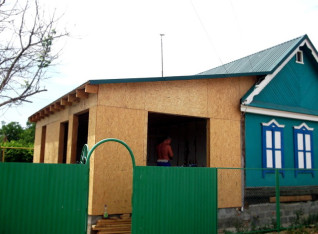Registering a share in America: Legal aspects of real estate ownership and legalization of redevelopments
In the United States, as in many other countries, the process of registering shares and legalizing real estate redevelopment is complex, but critical to protecting your investment. This article looks at the key legal aspects of this process, from the initial property inspection through to the clearance of additions and extensions.
1. Share registration: basics of American law
In the US, the term "share registration" often refers to the acquisition of an interest in a cooperative (co-op) or condominium property (condo). However, for the purposes of this article, we will look at the process more broadly, including the different forms of joint ownership of real estate.
1.1. Property check
Before purchasing an interest or part in American real estate, it is critical to conduct due diligence. This includes:
- Title search: checking the history of property, the presence of encumbrances (liens) or arrests (encumbrances).
- real estate inspection: assessment of the physical condition of the property, including identifying potential problems with redevelopment.
- Zoning review: ensuring the property complies with local zoning regulations and building codes.
1.2. Paperwork
After verification, the stage of paperwork begins. In the US this may include:
- purchase and sale agreement
- Title insurance policy, which protects against hidden title defects
- documents transferring ownership, such as a warranty deed or quitclaim deed
1.3. Registration in the county registry
Unlike many countries, in the United States, real estate registration is usually done at the county level. Once the documents are signed, they must be registered at the county recorder's office. It is a public record of your ownership.
2. Obtaining ownership by acquisitive prescription
In the USA there is also the concept of adverse possession, similar to the Ukrainian “acquisition of property by acquisitive prescription”. This allows a person who has been openly, continuously, and hostilely (without permission) using another's property for a specified period (varies from 5 to 30 years depending on the state) to obtain title to it.
However, successful use of adverse possession is rare and requires proof in court. This highlights the importance of clear boundaries and regular inspections of your property.
3. Legitimizing redevelopment: navigating the maze of rules
3.1. Registration of redevelopment
In the US, any major redevelopment requires permission from the local government, often the Department of Buildings. The process includes:
- Submission of detailed plans developed by a licensed architect or engineer.
- obtaining permission for redevelopment (alteration permit).
- inspections during and after completion of work.
3.2. Legalization of redevelopment
Once the work is completed, you will need to obtain a certificate of occupancy (CO). This document confirms that the work was completed according to the approved plans and complies with all building codes.
Important: unauthorized redevelopment can lead to significant fines, problems when selling, or even forced restoration of the original condition.
4. Legalization of an extension and superstructures
4.1. Add-on design
Adding a story (a superstructure) is highly regulated in the United States, especially in urban areas. The process includes:
- checking the structural integrity of the existing building.
- obtaining special permission for the add-on.
- hearings before the zoning commission are possible, especially if the structure exceeds the permitted height.
4.2. Extension design
Extensions also require careful design:
- checking compliance with the requirements for setbacks from the boundaries of the site.
- obtaining a building permit.
- there may be a need to change or increase engineering systems (water supply, sewerage, electricity).
5. Legalization of illegal buildings
5.1. Legalization of the building
If you have purchased a property with unauthorized modifications, the legalization process can be complex. There is no single federal mechanism in the United States, but each city or county has its own rules.
Typical process:
– disclosure of all illegal changes to the authorities.
- presentation of plans “as-built plans”.
- implementation of necessary changes to comply with codes.
- fines or increased fees for permits.
5.2. Building decoration
After legalization, it is necessary to update the documentation:
- obtaining a new or updated certificate of occupancy.
- changes to property documents to reflect a new area or configuration.
- re-assessment for tax purposes.
6. The role of professional real estate lawyers
In the USA the role of real estate attorney (real estate lawyer) cannot be overrated. Unlike some countries where notaries play a key role, in the United States the bulk of the work falls on the shoulders of lawyers. They:
- conduct title searches and analyze the results.
- Prepare and review all documents, including purchase and sale agreements
- Interact with real estate agents, inspectors and local authorities.
- Advise on the legality of redevelopments, add-ons and extensions.
- represent clients in litigation involving adverse possession or violations of building codes.
7. Regional features
The United States is a federation of 50 states, each of which has its own real estate laws. Some key differences:
- New York: strict rules on co-ops and condos, complex legalization processes.
- California: Seismic requirements affect redevelopment and additions.
- Florida: rules for additions may depend on proximity to the coast.
- Texas: more liberal zoning rules, but strict attitude towards adverse possession.
8. Conclusion: complexity and the need for a professional approach
Registering a share and legalizing redevelopment in the United States is a complex process that requires an understanding of federal, state and local laws. Key points:
– A thorough pre-purchase inspection can save thousands of dollars and years of hassle.
– Any changes in the structure of the building require official approval.
- Unauthorized redevelopment can have serious legal and financial consequences.
- Regional differences highlight the importance of local legal expertise.
Investing in American real estate can be very profitable, but navigating the legal waters requires a professional approach. Hiring a qualified real estate attorney is not just a recommendation—it is a necessity to ensure the legality, security, and long-term value of your investment.
In a world where every square foot can represent thousands of dollars in value, and every code violation can result in the loss of that value, careful adherence to unit registration rules and legalization of changes is not just a legal formality, but the foundation of your success in the American real estate market.




































